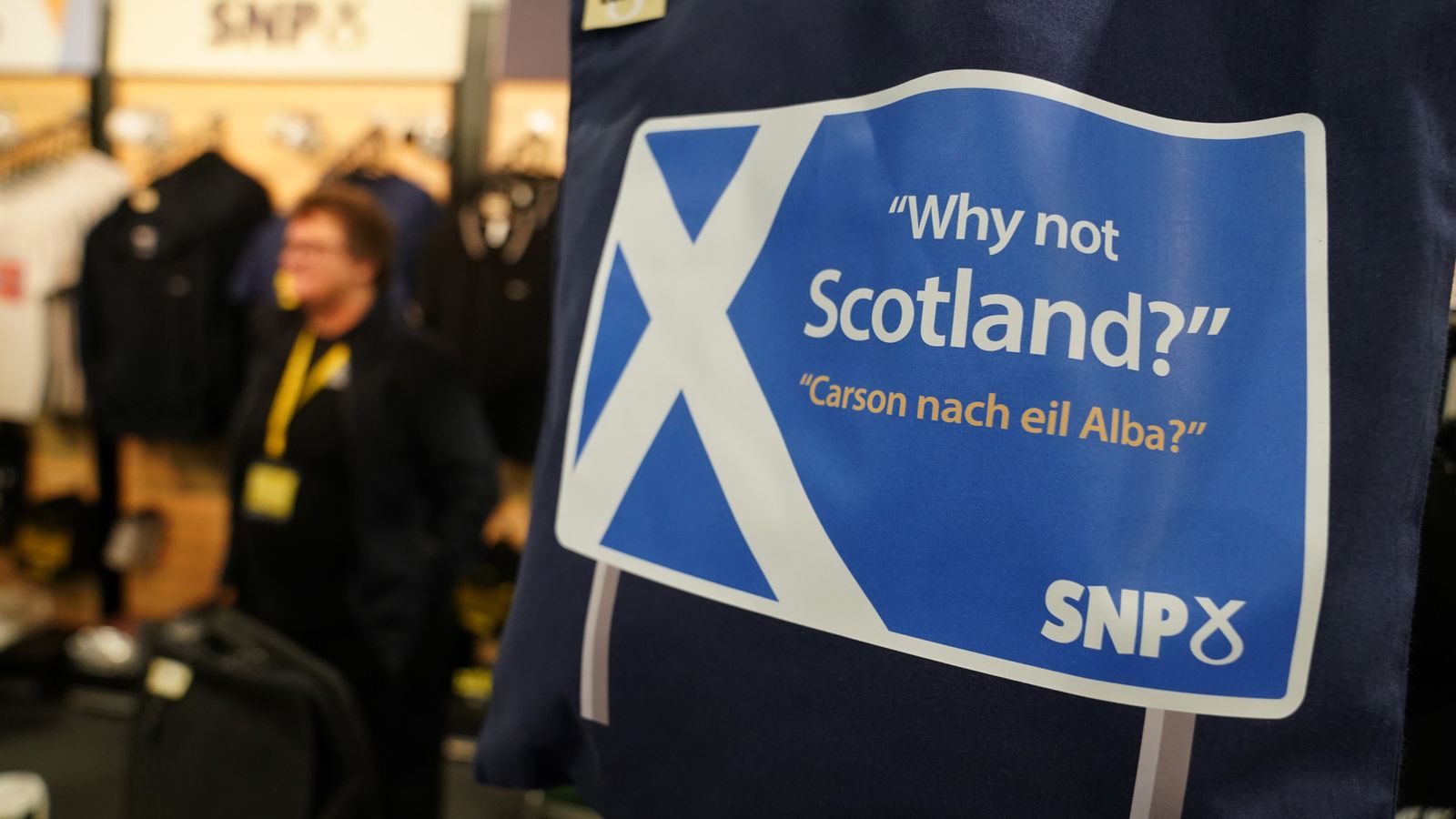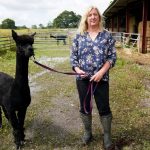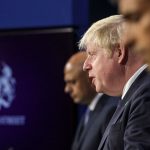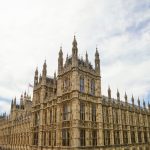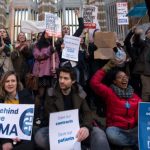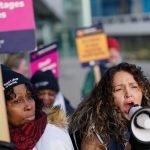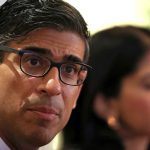The SNP’s annual gathering is, senior figures privately admit, its most difficult in over a decade. The mood among many at the conference in Aberdeen is downbeat.
The party was humiliated at a by-election in Rutherglen and Hamilton West; has just lost one of its MPs to the Conservatives – albeit in complex circumstances – and is neck and neck with Labour in the polls.
One party member – en route to a party karaoke event last night – joked, “I might sing [the New Labour anthem] ‘Things can only get better’. They can’t get any worse – or maybe they can.”
Politics latest: Six Britons killed and 10 missing since Hamas attack
Sky News Monday to Thursday at 7pm. Watch live on Sky channel 501, Freeview 233, Virgin 602, the Sky News website and app or YouTube.
Humza Yousaf, who took over seven months ago, has had to junk some of the unpopular policies bequeathed to him by Nicola Sturgeon and try to heal divisions over its independence plans.
As the party faces one of the most important general elections for the future of Scottish nationalism, he succeeded in getting members to back a new strategy – the party’s fourth in a year.
Delegates agreed that winning a majority of the parliamentary seats in Scotland next year – 29 out of 57 – would provide a mandate to demand the powers for another referendum.
This is a complete shift from last year, when Ms Sturgeon, then riding high, said the next election itself would be a “de facto” referendum on independence.
Yousaf, speaking from the main stage, yesterday called that position “the wrong approach” and a “trap” which would set a bar the party may not be able to meet.
Essentially, independence has become a long game. As one SNP MP put it to me: “This is not the election to hitch independence to. We are in damage limitation mode at this election.”
Many here say the lesson of the by-election drubbing is that voters want them to talk about the cost of living. But kicking independence into the long grass is risky.
A series of polls have suggested the SNP’s remarkable political dominance in Scotland may, after 16 years, be on the wane – not just at the general election, but at the Holyrood elections in 2026 too.
Read more:
Diminished SNP conference hints at worse to come
Sturgeon has not spoken to police since June
Yousaf’s wife ‘not comforted’ as govt work to get parents out of Gaza
Yousaf’s speech tomorrow will need to set out how the SNP goes about tackling this existential threat and winning back those who back independence (still hovering around 50%) but no longer support the SNP, now polling around 35%.
He will also need to turn the party’s guns on Labour for the first time since the SNP has been in majority government. It is 12 years since the SNP secured a majority of seats in the Scottish parliament – four years after Alex Salmond became first minister – and put the issue of a referendum centre stage.
During their years of dominance of both Westminster elections and Holyrood, they have been facing Conservative governments as Labour’s support in Scotland collapsed – capitalising on opposition to austerity, Brexit and Boris Johnson. Now the party faces the strong possibility of a Labour government and will need to change its tactics.
The message at this conference has been that Labour would be Tory-lite – deputy SNP leader Keith Brown said Sir Keir Starmer and Rachel Reeves would “stick with the Tories spending plans, sticking with Brexit, there’s no point in having a different set of politicians if they follow the same policies”.
But the result in Rutherglen has upended all that – a similar swing at a Westminster election would see Labour win 42 seats – up from just one at the last general election.
Labour doesn’t regard that as a likely result, but sources say the party winning more seats than the SNP is now within the realm of possibility.
The pollster Peter Kellner has said Labour winning 20 to 25 seats in Scotland is a realistic target.
Within the SNP, the talk has already turned to their best-case scenario at the general election if the polls remain as they are – either Labour as the largest party in a hung parliament, or with a tiny majority in which it needs the support of other parties, and they can extract concessions.
Labour sources were delighted with the SNP’s change of position on independence. One said: “They’re saying vote SNP and you won’t get independence anytime soon.”
Click to subscribe to Politics at Jack and Sam’s wherever you get your podcasts
Neither the Conservatives nor Labour shows any sign of being prepared to negotiate away the powers to hold a referendum to the Scottish parliament.
Yousaf will need to set out a course to win back independence-supporting voters, while the path to achieving it looks more uncertain.
